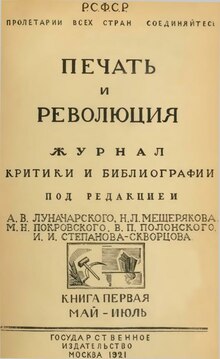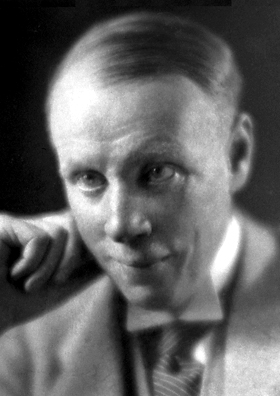
Harry Sinclair Lewis was an American novelist, short-story writer, and playwright. In 1930, he became the first author from the United States to receive the Nobel Prize in Literature, which was awarded "for his vigorous and graphic art of description and his ability to create, with wit and humor, new types of characters." Lewis wrote six popular novels: Main Street (1920), Babbitt (1922), Arrowsmith (1925), Elmer Gantry (1927), Dodsworth (1929), and It Can't Happen Here (1935).

The Ring is an American boxing magazine that was first published in 1922 as a boxing and wrestling magazine. As the sporting legitimacy of professional wrestling came more into question, The Ring shifted to becoming exclusively a boxing-oriented publication. The magazine is currently owned by Oscar De La Hoya's Golden Boy Enterprises division of Golden Boy Promotions, which acquired it in 2007. Ring began publishing annual ratings of boxers in 1924. With its November/December 2022 issue, the magazine stopped publication of its regular monthly print issues and will remain a digital publication, offering occasional special interest print issues.

The Atlantic is an American magazine and multi-platform publisher. It features articles in the fields of politics, foreign affairs, business and the economy, culture and the arts, technology, and science.

The London Review of Books (LRB) is a British literary magazine published bimonthly that features articles and essays on fiction and non-fiction subjects, which are usually structured as book reviews.

Charles Fenno Hoffman was an American author, poet and editor associated with the Knickerbocker Group in New York.
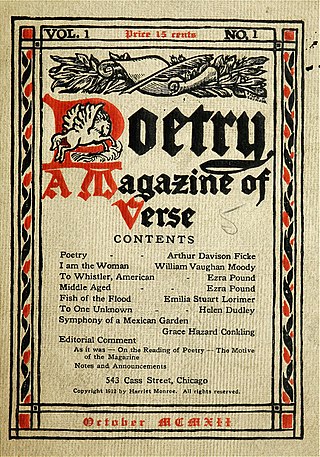
A literary magazine is a periodical devoted to literature in a broad sense. Literary magazines usually publish short stories, poetry, and essays, along with literary criticism, book reviews, biographical profiles of authors, interviews and letters. Literary magazines are often called literary journals, or little magazines, terms intended to contrast them with larger, commercial magazines.

Vladimir Georgiyevich Sorokin is a contemporary postmodern Russian writer and dramatist. He has been described as one of the most popular writers in modern Russian literature.

Field & Stream is an American online magazine focusing on hunting, fishing and other outdoor activities. The magazine was a print publication between 1895 and 2015 and became an online-only publication in 2020. After the magazine's purchase in 2024, it was announced that it will return to print.

The Smart Set was an American monthly literary magazine, founded by Colonel William d'Alton Mann and published from March 1900 to June 1930. Its headquarters was in New York City. During its Jazz Age heyday under the editorship of H. L. Mencken and George Jean Nathan, The Smart Set offered many up-and-coming authors their start and gave them access to a relatively large audience.

Artistic merit is the artistic quality or value of any given work of art, music, film, literature, sculpture or painting.

Alfred Francis Kreymborg was an American poet, novelist, playwright, literary editor and anthologist.

New Masses (1926–1948) was an American Marxist magazine closely associated with the Communist Party USA. It succeeded both The Masses (1912–1917) and The Liberator (1918–1924). New Masses was later merged into Masses & Mainstream (1948–1963). With the coming of the Great Depression in 1929 America became more receptive to ideas from the political Left and New Masses became highly influential in intellectual circles. The magazine has been called “the principal organ of the American cultural left from 1926 onwards."

Scribner's Magazine was an American periodical published by the publishing house of Charles Scribner's Sons from January 1887 to May 1939. Scribner's Magazine was the second magazine out of the Scribner's firm, after the publication of Scribner's Monthly. Charles Scribner's Sons spent over $500,000 setting up the magazine, to compete with the already successful Harper's Monthly and The Atlantic Monthly. Scribner's Magazine was launched in 1887, and was the first of any magazine to introduce color illustrations. The magazine ceased publication in 1939.
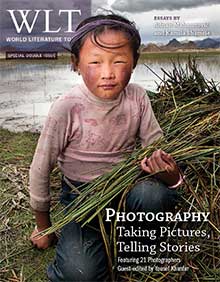
World Literature Today (WLT) is an American magazine of international literature and culture, published at the University of Oklahoma. The magazine's stated goal is to publish international essays, poetry, fiction, interviews, and book reviews for a non-academic audience. It was founded under the name Books Abroad in 1927 by Roy Temple House, a professor at the University of Oklahoma. In January 1977, the journal assumed its present name, World Literature Today.
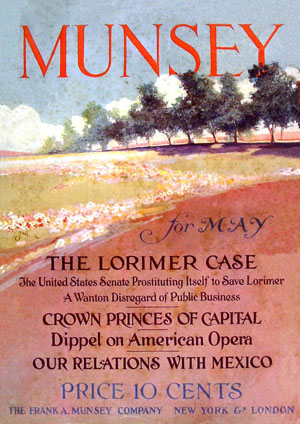
Munsey's Magazine was an American magazine founded by Frank Munsey. Originally launched in 1889 as Munsey's Weekly, a humorous magazine, edited by John Kendrick Bangs, it was not successful, and by late 1891 had lost $100,000. Munsey converted it to a general illustrated monthly in October of that year, retitled Munsey's Magazine and priced at twenty-five cents. Richard Titherington became the editor, and remained in that role for the rest of the magazine's existence. In 1893 Munsey reduced the price to ten cents : this brought him into conflict with the American News Company, which had a near-monopoly on magazine distribution, as they were unwilling to handle the magazine at the cost Munsey asked for. Munsey started his own distribution company and was quickly successful: the first issue at ten cents began with a print run of 20,000 copies but eventually sold 60,000, and within a year circulation had risen to over a quarter of a million issues.

Russian Mind is a pan-European sociopolitical and cultural magazine, published on a monthly basis both in Russian and in English. The modern edition follows the traditions of the magazine laid down in 1880 by its founder, Vukol Mikhailovich Lavrov. At the time of its first publications, Russkaya Mysl,, adhered to moderate constitutionalism – the idea which paved the way for the ideological and organizational creation of the Cadet Party.

Andrey Alexandrovich Krayevsky was a Russian publisher and journalist, best known for his work as an editor-in-chief of Otechestvennye Zapiski (1839–1867), the influential literary journal of which he was also publisher. Another well-known publication Krayevsky founded was the popular newspaper Golos.

Krasnaya Nov was a Soviet monthly literary magazine.

Ivan Stoyanov Andreychin was a Bulgarian literary and theater critic, poet, fiction writer, playwright and translator.
Ivan Mikhailovich Bespalov was a Russian Soviet literary critic.
